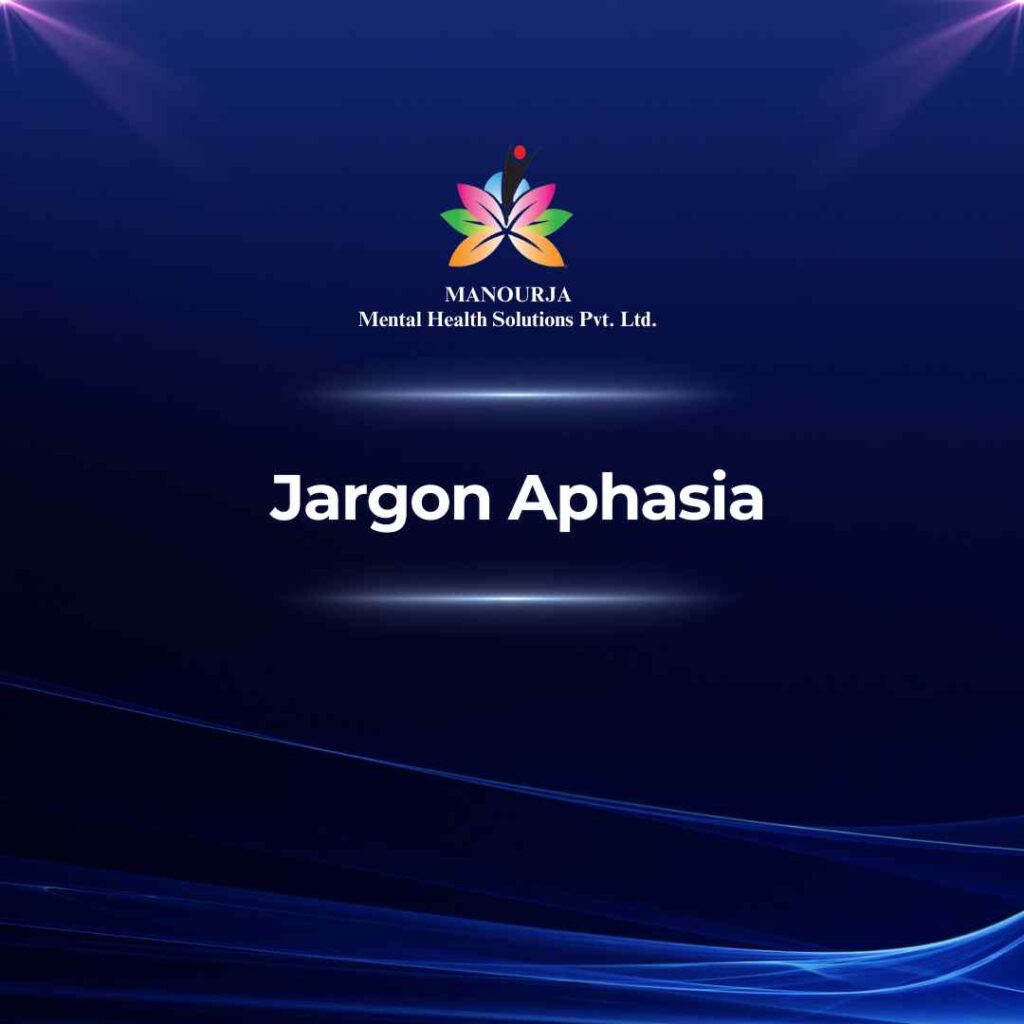Jargon Aphasia

Jargon aphasia, also known as fluent aphasia or Wernicke’s aphasia, is a type of language disorder characterized by speech that is fluent but filled with nonsensical, incorrect, or invented words (neologisms). People with jargon aphasia can produce a stream of words that sounds like normal speech but lacks meaningful content. Their sentences may be grammatically correct but incomprehensible to listeners.
As a Sign and Symptom of Mental Illness
Jargon aphasia is typically a sign of neurological damage or dysfunction rather than a mental illness per se. It indicates an impairment in the brain’s language centers, particularly in the left hemisphere where language processing areas like Wernicke’s area are located. This condition can severely impact communication and is often associated with frustration and social isolation for the affected individual.
Conditions with “Jargon Aphasia” as a Symptom
Jargon aphasia can be present in several neurological and psychological conditions:
- Stroke: One of the most common causes of jargon aphasia is a stroke, particularly when it affects the left hemisphere’s language areas. Damage to these regions can disrupt normal language processing, leading to fluent but nonsensical speech.
- Traumatic Brain Injury (TBI): Head injuries can cause damage to the brain’s language centers, resulting in various types of aphasia, including jargon aphasia.
- Brain Tumors: Tumors in the brain, especially in or near the language areas, can cause aphasia by compressing or damaging these regions.
- Alzheimer’s Disease and Other Dementias: In the later stages of Alzheimer’s disease and other dementias, language abilities can deteriorate, leading to symptoms such as jargon aphasia. The progressive neurodegeneration affects the brain’s ability to process and produce coherent speech.
- Primary Progressive Aphasia (PPA): This is a type of dementia that specifically affects language capabilities. Over time, individuals with PPA can develop jargon aphasia as the disease progresses.
- Schizophrenia: Though less common, severe forms of schizophrenia can sometimes involve disorganized speech that resembles jargon aphasia. This is typically more associated with the disorganized thinking characteristic of the condition rather than true aphasia.
Managing and Addressing Jargon Aphasia
Treatment and management of jargon aphasia depend on the underlying cause:
- Speech Therapy: Speech-language pathologists work with individuals to improve their language skills and develop alternative communication strategies.
- Medication: In cases where the underlying condition is treatable with medication (e.g., certain types of dementia or psychiatric conditions), appropriate medication can help manage symptoms.
- Rehabilitation: For stroke or TBI patients, a comprehensive rehabilitation program, including physical, occupational, and speech therapy, can be beneficial.
- Supportive Communication Techniques: Using visual aids, gestures, and simplifying language can help improve communication with individuals experiencing jargon aphasia.
Recognizing jargon aphasia as a symptom is essential for diagnosing and treating the underlying neurological or psychiatric condition, improving the individual’s ability to communicate and enhancing their quality of life.
At MANOURJA, we believe in the transformative power of counseling. Our experienced therapists offer a safe and supportive space where you can explore your thoughts, emotions, and challenges. Through personalized counselling sessions, we’ll work together to develop coping strategies, build resilience, and achieve lasting positive change. Discover the path to a healthier, happier you with MANOURJA counselling services.
MANOURJA Rehabilitation Services
At MANOURJA, we’re dedicated to helping you in rebuild your life, after difficult times. Our rehabilitation services focus on understanding what you need to move forward, whether you’re recovering from addiction, trauma, or any psychological – social challenges. We create personalized plans, that are all about helping you, regain your strength and find hope again. With a caring team by your side, you’ll have the support to make real progress and take steps toward a brighter, healthier future.
